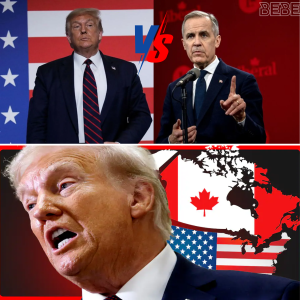Emily Harper had always believed love was a quiet thing—soft words at dawn, the way Jack’s calloused fingers traced her wedding band while they watched the cornfields turn gold outside their Iowa farmhouse. They’d met in Des Moines, two kids from broken homes who swore they’d build something unbreakable. Jack sold tractors; Emily taught third grade. Their life was ordinary, predictable, and that was the point.
When the pregnancy test showed two pink lines, Jack kissed her forehead and whispered, “We’re gonna be a family.” He rubbed her belly like it was a magic lamp, promising the moon. But that night, he locked the bathroom door. Emily heard the faucet run, the slick sound of soap on skin, and the low grunt that followed. She pressed her ear to the wood and felt the first chill.
“It’s just stress,” she told herself. “He’s scared of hurting the baby.” She read the forums: *Some men pull away during pregnancy.* She bought lavender oil, left the door open, wore the red nightgown he used to tear off with his teeth. Nothing worked. Jack’s eyes slid past her like she was furniture.
By the fourth month, the ritual began. Jack would wait until the house was dark, then call her name from the bathroom. “Emily. Come sit.” His voice was flat, the way it got when he haggled over combine prices. If she hesitated, his stare turned sharp enough to cut glass. She’d perch on the toilet lid, knees together, hands clasped over the swell of her stomach, watching him lather the same bar of white soap—unscented, generic, the kind they bought in bulk at Walmart.
He never touched her. He never looked at her. He just worked himself with mechanical precision, eyes half-closed, until the moment he finished. Then it came: a white-hot spike in her abdomen, as if the baby had claws. Emily doubled over, gasping, tears streaming. Jack’s lips curled—not quite a smile, more like satisfaction. He’d rinse the soap, dry his hands, and walk past her like she was a ghost.
The pain always stopped the second he left the room. No bruising, no bleeding. Just the echo of it, and the smell of soap clinging to her skin.
She started noticing the powder. Before they made love—back when they still did—Jack would dip his fingers into a small tin on the nightstand and dust her belly with something fine and chalky. “Old family luck,” he’d mutter. She’d laughed, thinking it was sweet. Now the tin sat on the bathroom shelf, lid askew, a faint residue inside.

One night, after the pain left her shaking on the tile, Emily waited until Jack’s snores filled the house. She crept to the bathroom, heart hammering, and opened the tin. The powder was gone. In its place: a single photograph. Her ultrasound, the one from the twelve-week scan. Jack’s thumbprint smudged across the baby’s outline.
She drove to the library the next morning, claiming a doctor’s appointment. The librarian, Mrs. Kline, knew her from story hour. Emily whispered her question. Mrs. Kline’s face went pale. “That sounds like… binding. Old folk magic. My grandma talked about it. Men who wanted sons so bad they’d tie the mother’s pain to their own release. The powder’s usually bone meal and saltpeter. The soap’s just a focus.”
Emily’s hands shook as she typed *binding pregnancy pain* into the ancient computer. The results were sparse: a forum post from 2008, a grainy scan of a 19th-century grimoire. *The husband spills his seed in proxy; the wife bears the cost. The child is marked.* Marked for what, it didn’t say.
She confronted Jack that night. He was in the kitchen, sharpening a hunting knife with slow, deliberate strokes. “What did you do to me?” she asked, voice trembling.
Jack didn’t look up. “You wanted a baby. I gave you one.”
“The pain. The soap. The powder. Tell me.”
He set the knife down. “My daddy did it to my mama. She had three girls before me. Said the pain kept her from losing the boy. Said it bound the soul.” His eyes met hers, flat and cold. “It worked.”
Emily backed away. “You’re hurting me. You’re hurting *our child*.”
“It’s almost over,” he said. “One more month. Then we’ll have our son.”
She slept in the guest room, door locked, chair under the knob. The next morning, she packed a bag while Jack was at the co-op. She left the ultrasound on the table, a red X over the baby’s heart.
At the women’s shelter in Cedar Rapids, they believed her. The counselor, a wiry woman named Ruth, had seen stranger things in thirty years. “We’ll get you to a doctor who won’t ask questions. And a lawyer.”
Emily gave birth at thirty-eight weeks in a hospital two hours away. The baby was a girl—tiny, perfect, with Jack’s dark hair. No pain during delivery, just the ordinary ache of labor. The nurses cooed over her. Emily named her Lily, after her own mother.
Jack never came looking. Rumor was he sold the farm and moved west. Some said he took the tin with him.
Years later, when Lily asked why they didn’t have pictures of Daddy, Emily told her the truth in pieces small enough for a child: “He loved you so much it scared him. He thought pain was the price of keeping you safe. But love shouldn’t hurt.”
Lily, now eight, traced the faint scar on Emily’s belly—a thin white line where the pain had once lived. “Did it stop because you left?”
Emily kissed her forehead. “It stopped because I chose us.”
Outside, the Iowa sky stretched wide and clean. No soap, no powder, no binding. Just the two of them, and the quiet certainty that some magic is just cruelty in disguise.





